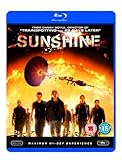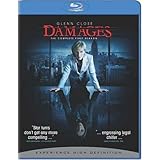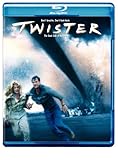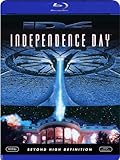
What a marvellous, but flawed, piece of cinema. Flawed in a good way, like a flawed hero: flawed in a way that makes it all the more necessary to see.
Sunshine, like the name of the spaceship it centres around ("Icarus II" - it being number II is just inspired - implication: haven't you learned your lesson?) has large elements of Greek tragedy and human hubris: it is probably no accident that the premise of the film is quite preposterous: that a small band of humans are sent to kick-start the dying sun by firing a nuclear device "the size of Manhattan" at it. No matter that the sun, itself really just a giant nuclear reactor, is billions of times the size of Manhattan - a point repeatedly made by Danny Boyle in establishing shots of the spaceship, and the planet mercury, dwarfed by the colossal inferno that the crew are flying towards.
Boyle's cinematography is exquisite: there are number of timeless set pieces which convey utterly the forlorn weediness of homo sapiens in the face of the almighty grandeur of the cosmos. Elsewhere the screen rendering is inventive and at all times eloquent and elegant. There is some amusing implausibility embedded (and not just the film's very premise: for example: gravity seems to come and go with air pressure), but none which can't be happily thrown into the suspended disbelief bucket for a couple of hours. This is a very thoughtful and stylishly composed film, and one that would render far more impressively on a cimema screen than at home on a television (which, alas, is where I saw it). The music is intelligent, too, with reminiscence of Brian Eno's Apollo: Atmospheres and Soundtracks.
That's not to say it is massively coherent: perhaps by deliberate intent, Boyle poses big questions but is less interested in answering them. This is a time-honoured tradition in "intelligent science fiction" of course - some would say it's a characteristic of the very best films in the genre (for example Solaris and 2001: A Space Odyssey, both of which Sunshine resembles in significant ways).
That said, and for all its visceral beauty, in Sunshine it is often difficult to make out exactly what is going on, or why. Icarus II experiences malfunctions which necessitate two astronauts taking a space walk to assess and repair damage: it isn't clear what caused the damage, how they're getting along with fixing it, or why events transpire they way they do. There are several plot developments which aren't sufficiently trailed, and it felt to me that this was a case of rushed exposition rather than design. While there are no obvious flaws in the special effects as presented, you do get the sense they've been filmed carefully so as not to over-expose their limitations: blurring, jarring jump-cuts, lens flare and so forth are creatively employed. As a result, you have no choice but to let the ambiguity and incoherence wash over you and enjoy the film for the questions it asks and the images it presents, rather than a coherent statement of a narrative arc.
This becomes harder to do as the film reaches its conclusion, where it becomes more character and plot driven than in the early exchanges. Here the rushed exposition does let the film down: None of the characters are particularly well expounded (there is an early fight between two of them that is never explained), and a little bit more attention to back story might have helped clarify the narrative intent. Sunshine isn't an overly long film, and you do sense a "director's cut" adding in some of this back story would make a difference. Searle's character, for example, definitely had more scope for depth than was ultimately expounded, and more attention could have been paid to the plight of Icarus I.
The Amazon readership has marked Sunshine very harshly: Perhaps they expected something like Armageddon: This is definitely at the other end of the science fiction spectrum. It is a film which would repay re-watching for sure.
Olly Buxton
(325 customers reviews)Customers Rating=3.5 / 5.0
More Detail For
Sunshine Blu ray










































